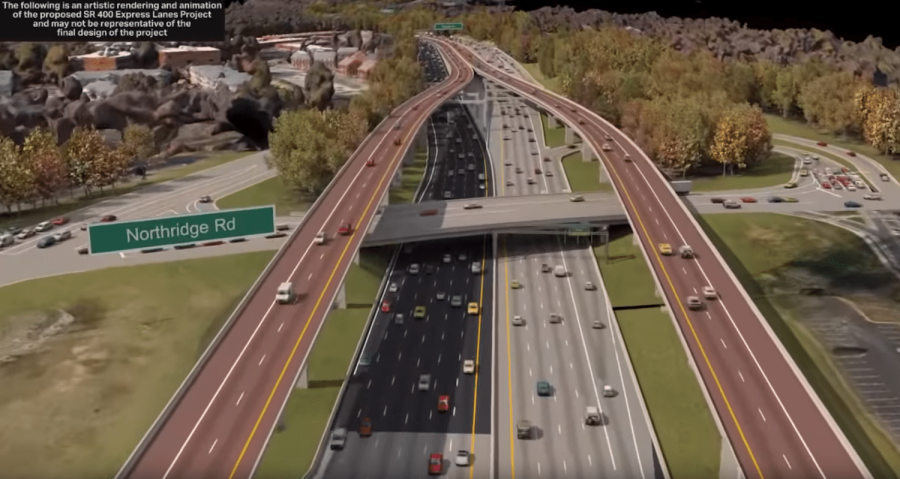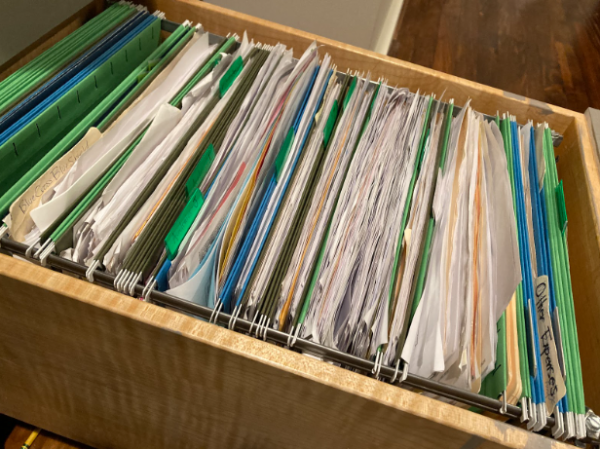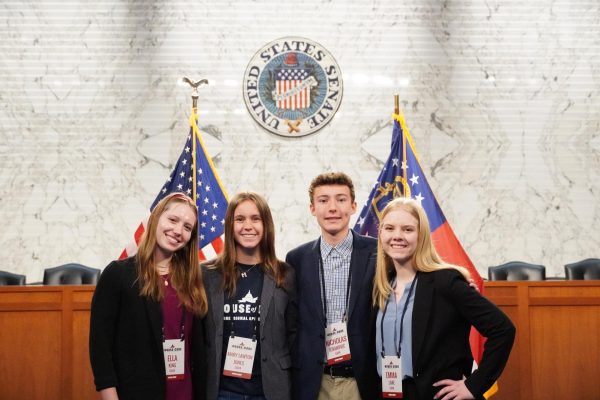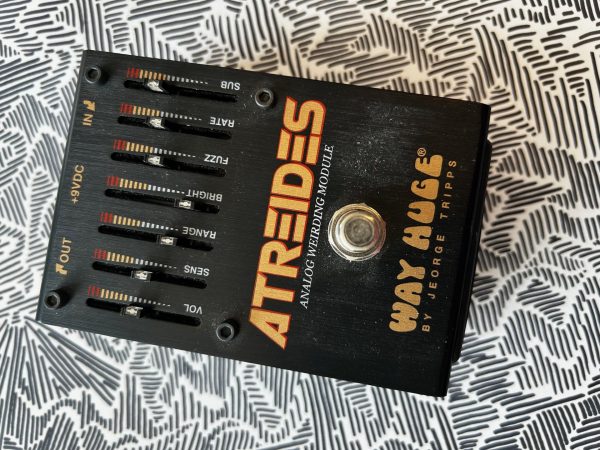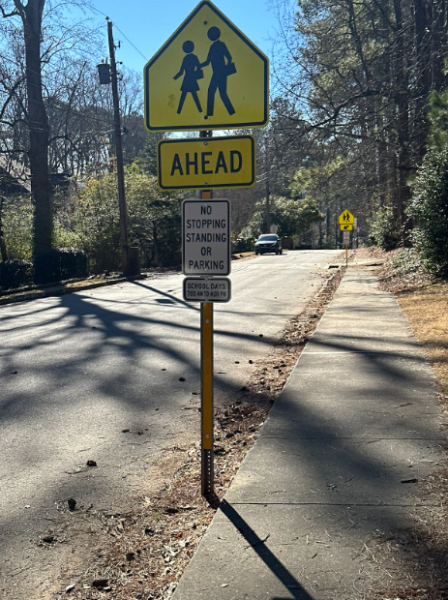Public Expresses Their Concerns For Proposed Express Lanes on I-285 and GA-400
Photo courtesy of Reporter Newspapers.
A mock-up of the overhead express lanes above GA-400, provided by the GDOT.
The Georgia Department of Transportation has recently announced a bold new initiative that will be completed over the next decade: toll lanes will be added above and beside I-285 and GA-400. According to GDOT, the express lane project will be a combination of at-grade and elevated, barrier-separated lanes running alongside or above the existing highways.
GDOT believes these lanes are the best way to cut down on Atlanta’s traffic problem.
“Georgia Express Lanes are optional priced lanes that run alongside existing interstates in some of the most congested corridors around metro Atlanta. These lanes provide a choice for drivers to bypass congestion when desired, offer a clear path for transit operators and add an alternative to the roads that exist today,” their website says. “Express Lanes are intended to provide a mobility choice and more reliable travel times in peak periods for motorists and bus patrons. The result is a network of lanes that provide more reliable and predictable trip times.”
There has already been public dissatisfaction with GDOT’s plans for the GA-400 express lanes. The Alpharetta City Council discussed amendments to the proposed plans, including extra interchanges and other changes that would lead to less negative impacts for the community and make the project more useful. Leaders in Brookhaven, Roswell, and Sandy Springs have also called for changes to the plans concerning their jurisdictions.
Brookhaven Mayor John Ernst was particularly worried about the impact of the construction on citizens of his city.
“Up to 300 properties along the I-285 corridor could be impacted, according to GDOT estimates,” said Ernst. “That’ll range from construction easements to full on land takings.”
The eminent domain land takings are the main concern of most of the outspoken opponents of the express lanes project, especially because GDOT changed their procedures towards approaching projects, waiting to take public comments and input until after they’ve already completed an environmental impact plan.
“There is nothing that the city can do to stop the project,” said Ernst. “All that we can do now is try and improve the construction for the citizens of Brookhaven and people living along the I-285 corridor.”
But, for those whose properties wouldn’t be impacted by the construction, the express lanes seem like a good thing. One Chamblee student, freshman Flora Alexander comes to school every day by driving on 285.
“I think the express lanes will be a good thing,” said Alexander. “Sometimes we get caught in traffic buildups, and it would be a good thing to have a lane with less traffic, even if you have to pay for it.”
Teachers, such as engineering teacher Lucretia Gant, were also optimistic about the express lanes.
“I think they’ll be a good thing,” said Gant. “If people are going to be able to choose to use these lanes, then I think that’s a good choice for them to have. Especially when traffic is really backed up, having that lane to use could help them get wherever they need to go faster, and for just a low price that could be useful.”
However, others weren’t so optimistic about the express lanes, and doubting their effectiveness, such as senior Nick Turner.
“I really don’t think anybody will actually bother using them,” said Turner. “It’s more likely that they’ll put all that money into building them, and all that time, and then they’ll just be empty. Kind of like those Peach Pass lanes.”
The Peach Pass lanes Turner referred to were another project by the GDOT, converting HOV lanes along I-75 and I-575 to toll-charging express lanes.
“Why would I pay extra just to get in a slightly faster lane? Why are they wasting tax dollars on building this stuff?” Turner asked.
However, there’s a difference between the new I-285/GA-400 lanes and the Peach Pass lanes due to their design. According to preliminary images released by GDOT, the new express lanes are planned to be totally separated lanes with barriers running down the middle of the interstates, accessible only at certain locations from the main road, instead of just converting HOV lanes like the PeachPass project did.
Controversy aside, the project is bound to be a long one – estimated completion dates are 2027 and 2029 for GA-400 and I-285 Express Lanes, respectively, with nearly 5 years of construction planned for each.
Your donation will support the student journalists of Chamblee High School Blue & Gold. Your contribution will allow us to print editions of our work and cover our annual website hosting costs. Currently, we are working to fund a Halloween satire edition.

